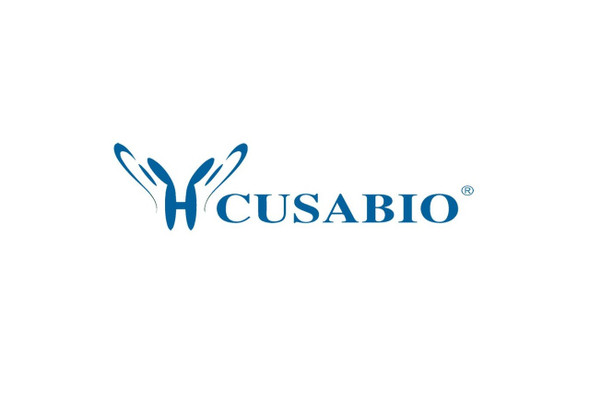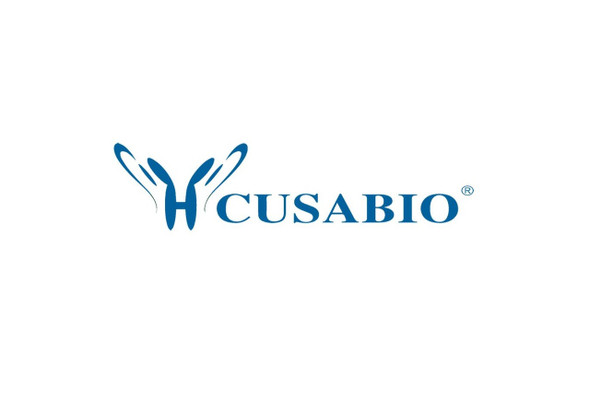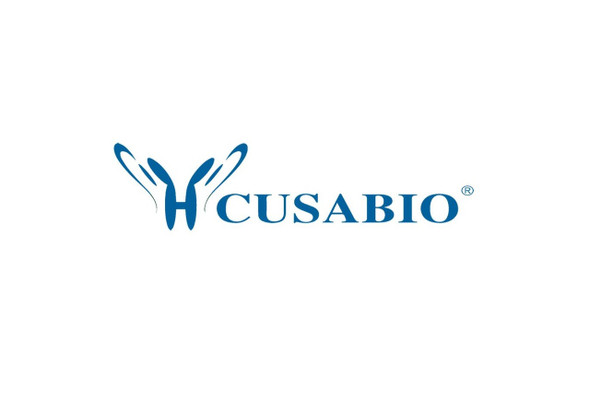Cusabio Human Recombinants
Recombinant Human Complement C1q subcomponent subunit A (C1QA) | CSB-EP003637HU
- SKU:
- CSB-EP003637HU
- Availability:
- 13 - 23 Working Days
Description
Recombinant Human Complement C1q subcomponent subunit A (C1QA) | CSB-EP003637HU | Cusabio
Alternative Name(s): C1qa; C1QA_HUMAN; Complement C1q subcomponent subunit A; Complement component 1 q subcomponent A chain; Complement component 1 q subcomponent alpha polypeptide; Complement component C1q A chain
Gene Names: C1QA
Research Areas: Immunology
Organism: Homo sapiens (Human)
AA Sequence: EDLCRAPDGKKGEAGRPGRRGRPGLKGEQGEPGAPGIRTGIQGLKGDQGEPGPSGNPGKVGYPGPSGPLGARGIPGIKGTKGSPGNIKDQPRPAFSAIRRNPPMGGNVVIFDTVITNQEEPYQNHSGRFVCTVPGYYYFTFQVLSQWEICLSIVSSSRGQVRRSLGFCDTTNKGLFQVVSGGMVLQLQQGDQVWVEKDPKKGHIYQGSEADSVFSGFLIFPSA
Source: E.coli
Tag Info: N-terminal 6xHis-SUMO-tagged
Expression Region: 23-245aa
Sequence Info: Full Length of Mature Protein
MW: 39.7 kDa
Purity: Greater than 90% as determined by SDS-PAGE.
Relevance: C1q associates with the proenzymes C1r and C1s to yield C1, the first component of the serum complent syst. The collagen-like regions of C1q interact with the Ca2+-dependent C1r2C1s2 proenzyme complex, and efficient activation of C1 takes place on interaction of the globular heads of C1q with the Fc regions of IgG or IgM antibody present in immune complexes.
Reference: The DNA sequence and biological annotation of human chromosome 1.Gregory S.G., Barlow K.F., McLay K.E., Kaul R., Swarbreck D., Dunham A., Scott C.E., Howe K.L., Woodfine K., Spencer C.C.A., Jones M.C., Gillson C., Searle S., Zhou Y., Kokocinski F., McDonald L., Evans R., Phillips K. , Atkinson A., Cooper R., Jones C., Hall R.E., Andrews T.D., Lloyd C., Ainscough R., Almeida J.P., Ambrose K.D., Anderson F., Andrew R.W., Ashwell R.I.S., Aubin K., Babbage A.K., Bagguley C.L., Bailey J., Beasley H., Bethel G., Bird C.P., Bray-Allen S., Brown J.Y., Brown A.J., Buckley D., Burton J., Bye J., Carder C., Chapman J.C., Clark S.Y., Clarke G., Clee C., Cobley V., Collier R.E., Corby N., Coville G.J., Davies J., Deadman R., Dunn M., Earthrowl M., Ellington A.G., Errington H., Frankish A., Frankland J., French L., Garner P., Garnett J., Gay L., Ghori M.R.J., Gibson R., Gilby L.M., Gillett W., Glithero R.J., Grafham D.V., Griffiths C., Griffiths-Jones S., Grocock R., Hammond S., Harrison E.S.I., Hart E., Haugen E., Heath P.D., Holmes S., Holt K., Howden P.J., Hunt A.R., Hunt S.E., Hunter G., Isherwood J., James R., Johnson C., Johnson D., Joy A., Kay M., Kershaw J.K., Kibukawa M., Kimberley A.M., King A., Knights A.J., Lad H., Laird G., Lawlor S., Leongamornlert D.A., Lloyd D.M., Loveland J., Lovell J., Lush M.J., Lyne R., Martin S., Mashreghi-Mohammadi M., Matthews L., Matthews N.S.W., McLaren S., Milne S., Mistry S., Moore M.J.F., Nickerson T., O'Dell C.N., Oliver K., Palmeiri A., Palmer S.A., Parker A., Patel D., Pearce A.V., Peck A.I., Pelan S., Phelps K., Phillimore B.J., Plumb R., Rajan J., Raymond C., Rouse G., Saenphimmachak C., Sehra H.K., Sheridan E., Shownkeen R., Sims S., Skuce C.D., Smith M., Steward C., Subramanian S., Sycamore N., Tracey A., Tromans A., Van Helmond Z., Wall M., Wallis J.M., White S., Whitehead S.L., Wilkinson J.E., Willey D.L., Williams H., Wilming L., Wray P.W., Wu Z., Coulson A., Vaudin M., Sulston J.E., Durbin R.M., Hubbard T., Wooster R., Dunham I., Carter N.P., McVean G., Ross M.T., Harrow J., Olson M.V., Beck S., Rogers J., Bentley D.R.Nature 441:315-321(2006)
Storage: The shelf life is related to many factors, storage state, buffer ingredients, storage temperature and the stability of the protein itself. Generally, the shelf life of liquid form is 6 months at -20?/-80?. The shelf life of lyophilized form is 12 months at -20?/-80?.
Notes: Repeated freezing and thawing is not recommended. Store working aliquots at 4? for up to one week.
Function: C1q associates with the proenzymes C1r and C1s to yield C1, the first component of the serum complement system. The collagen-like regions of C1q interact with the Ca(2+)-dependent C1r(2)C1s(2) proenzyme complex, and efficient activation of C1 takes place on interaction of the globular heads of C1q with the Fc regions of IgG or IgM antibody present in immune complexes.
Involvement in disease: Complement component C1q deficiency (C1QD)
Subcellular Location: Secreted
Protein Families:
Tissue Specificity:
Paythway: Complementandcoagulationcascades
Form: Liquid or Lyophilized powder
Buffer: If the delivery form is liquid, the default storage buffer is Tris/PBS-based buffer, 5%-50% glycerol. If the delivery form is lyophilized powder, the buffer before lyophilization is Tris/PBS-based buffer, 6% Trehalose, pH 8.0.
Reconstitution: We recommend that this vial be briefly centrifuged prior to opening to bring the contents to the bottom. Please reconstitute protein in deionized sterile water to a concentration of 0.1-1.0 mg/mL.We recommend to add 5-50% of glycerol (final concentration) and aliquot for long-term storage at -20?/-80?. Our default final concentration of glycerol is 50%. Customers could use it as reference.
Uniprot ID: P02745
HGNC Database Link: HGNC
UniGene Database Link: UniGene
KEGG Database Link: KEGG
STRING Database Link: STRING
OMIM Database Link: OMIM









